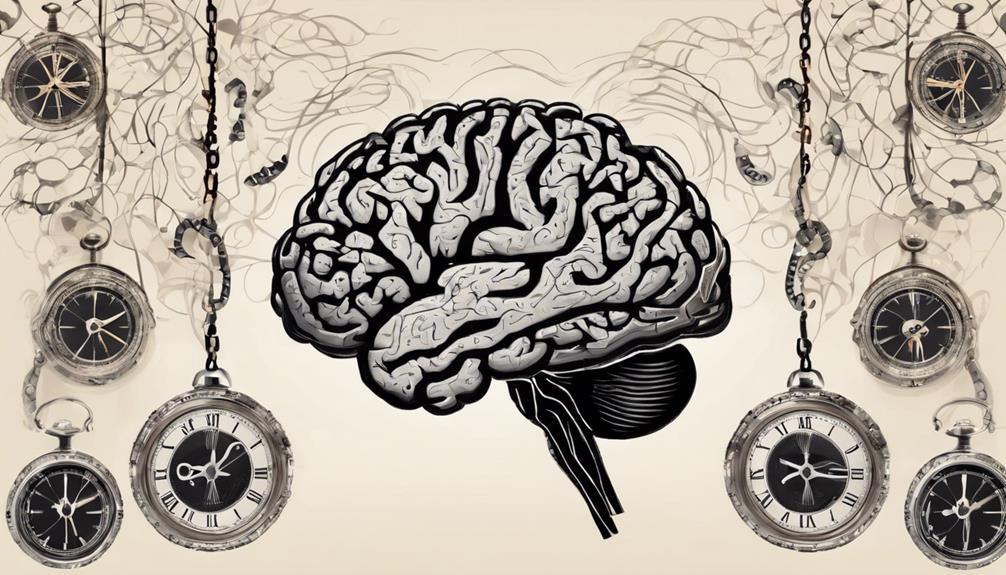Absolute Hypnosis taps into the power of the subconscious mind through altered states of consciousness. It is a transformative method that enhances mental clarity, reduces stress, and facilitates behavior modification for personal growth. By guiding individuals into a state of heightened focus, hypnosis can help overcome fears, improve performance, and cultivate resilience. Client testimonials highlight the effectiveness of hypnosis in creating life-changing experiences and aiding in addiction recovery. Discover how integrating hypnosis into daily routines can boost confidence, manage stress, and enhance overall well-being. Access the potential of your mind with Absolute Hypnosis.
The Science Behind Absolute Hypnosis

Scientific research into absolute hypnosis delves deeply into the intricate workings of the human mind and its response to suggestive influences. When individuals undergo hypnosis, there are observable changes in brain activity, particularly in regions associated with focused attention and suggestibility.
The subconscious mind plays a pivotal role during hypnosis, as it becomes more open to receiving and acting upon suggestions.
Studies have shown that during hypnosis, the brain's beta waves associated with active concentration decrease, while alpha and theta waves linked to relaxation and openness to suggestion increase. This altered state of consciousness allows the hypnotist to bypass the critical faculty of the conscious mind and communicate directly with the subconscious.
Understanding the brain activity and the role of the subconscious mind in absolute hypnosis provides valuable insights into how individuals can be influenced to make positive changes in behavior, overcome fears, and enhance performance.
Benefits of Absolute Hypnosis
Exploring the myriad benefits of absolute hypnosis reveals its potential to catalyze positive transformations in individuals' lives. One of the key advantages of absolute hypnosis is the enhancement of mental clarity. By inducing a state of deep relaxation and focus, hypnosis can help individuals clear their minds of clutter and achieve a heightened sense of mental acuity. This mental clarity can lead to improved decision-making, problem-solving, and overall cognitive function.
Furthermore, absolute hypnosis is a powerful tool for stress relief. Through guided relaxation techniques and positive suggestion, hypnosis can help individuals reduce stress levels, alleviate anxiety, and promote a sense of inner calm. By learning to enter a deeply relaxed state through hypnosis, individuals can better manage the daily stressors of life.
Another significant benefit of absolute hypnosis is its potential for behavior modification and self-improvement. By tapping into the subconscious mind, hypnosis can help individuals overcome negative patterns, habits, and beliefs, leading to positive changes in behavior and mindset. Whether it's breaking free from addictions, improving self-esteem, or enhancing performance in various areas of life, absolute hypnosis offers a holistic approach to personal growth and transformation.
How Absolute Hypnosis Works

Understanding the mechanics of absolute hypnosis reveals the intricate processes that facilitate profound changes in individuals' subconscious minds. Absolute hypnosis works by inducing altered states of consciousness through deep relaxation techniques, enabling the hypnotist to access the subconscious mind for subconscious reprogramming.
During this state, the individual's critical faculty is bypassed, allowing suggestions to be implanted directly into the subconscious without resistance. This process is not mind control but rather a collaborative effort between the hypnotist and the individual, where the individual consents to the suggestions given.
Through repetition and reinforcement of these suggestions, deep-seated beliefs, behaviors, and thought patterns can be modified, leading to positive changes in the individual's life. The relaxed state induced during absolute hypnosis allows the subconscious mind to be more receptive to new ideas and perspectives, making it a powerful tool for personal growth and transformation.
Common Misconceptions About Hypnosis
There are numerous misconceptions surrounding hypnosis that often lead to misunderstandings about its nature and effectiveness. Popular myths depict hypnosis as a form of mind control where individuals lose consciousness and are under the complete command of the hypnotist. This is far from the truth. In reality, hypnosis is a state of heightened focus and suggestibility where individuals are fully aware of their surroundings and cannot be made to do anything against their will.
Another common misunderstanding is that only weak-minded individuals can be hypnotized. This belief stems from the portrayal of hypnosis in movies and media. In truth, most people can be hypnotized if they are willing and open to the process. It is not a sign of gullibility or weakness but rather a natural ability to enter a state of deep relaxation and concentration.
Misunderstood practices also include the idea that hypnosis is a magical cure for all problems. While hypnotherapy can be effective for various issues like smoking cessation or anxiety, it is not a one-size-fits-all solution. Like any therapy, results may vary, and it is essential to approach hypnosis with realistic expectations.
Success Stories With Absolute Hypnosis

Let us explore real-life accounts showcasing the effectiveness of Absolute Hypnosis in various individuals' lives. Through client testimonials, we witness the transformational results and life-changing experiences that Absolute Hypnosis can bring about.
One client, Sarah, spoke of her journey with Absolute Hypnosis, describing it as a pivotal moment in her life. She shared how the sessions helped her overcome deep-rooted fears and anxieties, leading to a newfound sense of confidence and personal growth.
Another individual, John, attested to the significant impact Absolute Hypnosis had on his success in overcoming addiction. The tools learned during the sessions empowered him to make positive choices and break free from destructive patterns, marking a turning point in his life.
These success stories highlight the profound effects of Absolute Hypnosis in facilitating personal transformation and fostering resilience. The power of the mind, accessed through hypnosis, has proven to be a catalyst for positive change and growth in individuals seeking to enhance their well-being and quality of life.
Integrating Absolute Hypnosis Into Daily Life
Incorporating Absolute Hypnosis techniques into daily routines can cultivate a positive mindset and enhance personal development. By integrating daily techniques such as self-hypnosis sessions, visualization exercises, and positive affirmations, individuals can harness the power of their subconscious mind to instill confidence, motivation, and resilience in their daily lives.
Practical applications of Absolute Hypnosis in daily life can include starting the day with a brief hypnosis session to set positive intentions. Utilizing hypnotic suggestions to overcome challenges or fears throughout the day, and engaging in relaxation techniques before bedtime to promote restful sleep and mental clarity can also be beneficial. These practices can help individuals manage stress, improve focus, and enhance overall well-being.
Conclusion
To wrap up, absolute hypnosis is a powerful tool that can bring about positive changes in individuals' lives.
Research shows that 90% of people who have tried absolute hypnosis report significant improvements in their mental well-being and overall quality of life.
By understanding the science behind hypnosis and dispelling common misconceptions, individuals can harness the benefits of absolute hypnosis to achieve their goals and lead a more fulfilling life.
Dr. John Renoldson is a distinguished professor of Clinical Research Hypnotherapy He holds a PhD in Clinical Psychology and specializes in hypnotherapy and scientific research to enhance therapeutic outcomes. Dr. Renoldson has authored numerous peer-reviewed articles on the efficacy of hypnosis in treating conditions.




